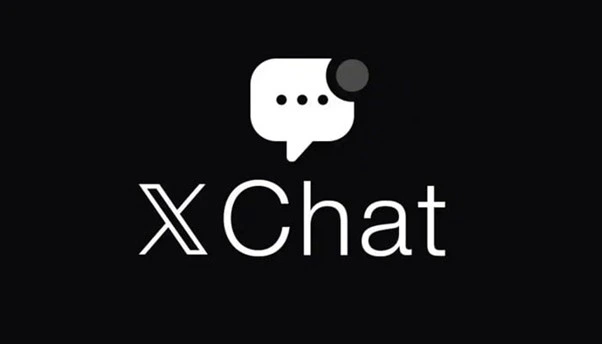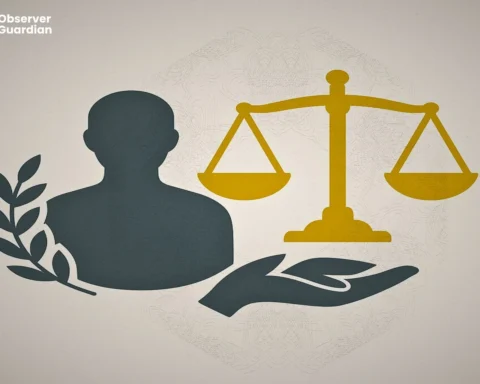Tech billionaire Elon Musk has revealed his newest project, XChat, a new messaging program meant to compete with industry behemoths like WhatsApp and Signal, in a daring action that might completely change the scene of digital communication. Musk revealed important information about the features of the app and the goal behind its development on X (previously known as Twitter), his social media platform. Already generating waves in the tech scene, XChat is positioned as a safe, feature-rich messaging platform for a new era of digital contact.
Musk’s tweet claims XChat provides end-to–end encrypted messaging, safe file sharing of any kind, and top-notch audio and video calling. These are now expected of top-notch messaging apps, but XChat wants to stand apart with some original ideas. Most importantly, Musk said, XChat has been developed totally from scratch using Rust, a contemporary programming language renowned for performance and safety. To support security and openness, he underlined that the platform uses “bitcoin-style encryption,” a nod to blockchain-inspired cryptographic ideas.
Among the bolder assertions Musk made in his speech is that XChat users will be able to make audio, or video calls across several platforms without requiring a phone number. Many of the conventional communication applications still rely on users enrolling with a mobile number, hence this marks a major difference from them. Eliminating this need will not only improve user privacy but also increase access for those who might not wish their identities connected to a phone number, particularly in areas where telecommunication control is strong or limited.
XChat’s introduction coincides with a period of heightened privacy and surveillance in digital communications when issues abound. Governments and businesses all around are under examination for their actions either safeguarding or violating user data. Demand for safe messaging systems has thus exploded. Apps such as Signal and WhatsApp have responded by including end-to- end encryption as a basic capability. To meet user expectations and legal demands, even historically lagging platforms as Facebook Messenger and Instagram have started implementing encryption in phases.
Musk’s foray into the messaging app space seems to be a philosophical posture more than only a commercial one. Long strident critic of centralized data control, he has often spoken out on the dangers presented by tech monopolies and intrusive government surveillance. Developing XChat helps Musk seem to be supporting distributed, safe digital era communication as a champion.
Technical specifics on XChat are still rare, but Musk’s emphasis on Rust as the fundamental programming language suggests the app’s performance and safety-oriented focus. Rust has been well-known recently for its ability to stop many of the typical flaws and vulnerabilities affecting programs created in older languages such as C and C++. By selecting Rust, the XChat team is expressing a dedication to create from the bottom up a strong and future-proof platform.
The reference to “bitcoin-style encryption” especially fascinates me. Although XChat’s direct integration of blockchain technology is yet unknown, the reference points to a model based on cryptographic transparency, maybe even decentralization. Should XChat integrate blockchain features like distributed verification or cryptographic hashing’s, it might set the standard for what qualifies as safe messaging.
XChat could set itself apart also in terms of compatibility. Musk’s assertion that the app will let calls to “any other platform” without requiring a phone number points to a degree of openness and integration not usually seen in big messaging services, which frequently run as walled ecosystems. Should XChat be able to provide cross-platform capability without sacrificing security, it might change expectations for digital communication tools.
Still, joining the messaging app space is no small task. With more than two billion users, WhatsApp rules the worldwide scene; followed by companies like Telegram, Signal, and Messenger Every one of these programs has years of experience developing a user base, honing features, and adjusting to evolving laws. Convincing consumers that XChat provides not only outstanding privacy and functionality but also the dependability and simplicity of use they have come to know will present challenges for Musk.
Elon Musk has a history of upending established sectors; hence this is noteworthy. From transforming electric cars with Tesla to reimagining space exploration with SpaceX, Musk has shown time and again his capacity for mass innovation. His buy and rebranding of Twitter into “X fit a larger ambition to develop an all-encompassing software, frequently referred to as a “everything app” that includes social networking, payments, messaging, and more. XChat may be a major pillar in this ecosystem, maybe interacting with other X-based services.
So far public reaction to the XChat announcement has been conflicting. The idea of a Musk-led substitute for current messaging apps excites enthusiasts especially one with a strong emphasis on privacy and user autonomy. Critics, however, draw attention to the difficulties establishing confidence on a new platform, particularly one that can be impacted by Musk’s erratic corporate and communication strategy approach. Furthermore, privacy activists will be keenly observing to see whether XChat really lives up to its promise of safe, dispersed messaging.
The tech community will be better able to determine whether XChat can really threaten the established players as more specifics about its functionality, governance approach, and data regulations become known. For now, it is yet another illustration of Elon Musk’s goal to impact the future of technology, not only through rockets and cars, but also in the basic manner people interact.
In a time when data security and privacy are non-optional, the entrance of a new player like XChat is both relevant and logical. Whether it manages to dethronized the likes of WhatsApp remains to be seen, one thing is certain: the struggle over the direction of digital messaging just got a lot more fascinating.







